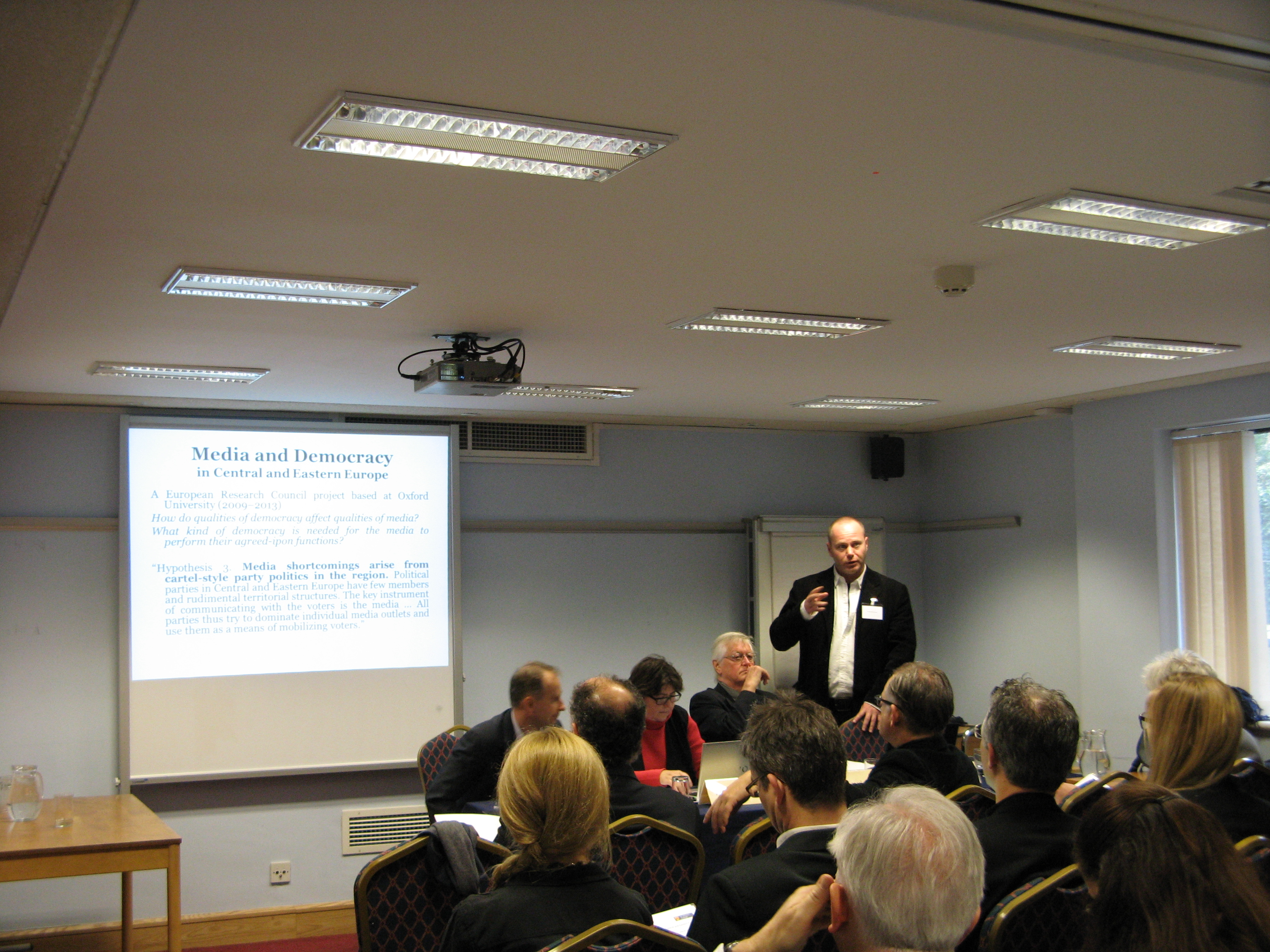Parties and Party Systems in Central and Eastern Europe
November 28, 2012 -
Josh Black
-
Bez kategorii

MDCEE seminar Nov 12.jpg
A conference held at St Antony’s College, Oxford on November 16th to 17th 2012 sought to examine the bases for party systems across Central and Eastern Europe as part of an ongoing research project looking at Media and Democracy in the region.
Looking back to 1989, the party systems which have since sprung up and become routine appear all the more remarkable. In the majority of cases, single-party states were overthrown by mass mobilisation orchestrated by a sort of rudimentary civil society before splitting as though by mitosis into a series of separate interest groups. Political scientists rushed to explain and encourage the institutionalisation of party systems. Some said that it would take a generation for civil society to support political plurality, others that the East would soon begin to converge with the Western ideal, still others that competition between groups would bring diversity, or that we were living in an age of post-democracy, where mass civil engagement in politics was no longer likely.
Predictably, few theories adequately explain the extraordinary diversity seen across the continent, yet a few trends do appear worthy of further analysis. For a start, most party systems are closing ranks to the emergence of new parties. Although Poland experienced a kind of sudden seizure with the success of Law and Justice in 2005, a new pattern of alternation between parties has been established. The Czech Republic, another exception, has seen a very slight decrease in closure, albeit from a high starting point, while the trajectory of Hungarian politics towards domination by Fidesz has taken the system to a fixedness more common to Western Europe.
Moreover, this institutionalisation is happening in the absence of a significant strengthening of the parties’ organisational capacities. Perhaps we should not be overly concerned by this; after all, western political parties have defied the convergence theorists by moving closer towards the Eastern European model, rapidly losing mass memberships and coherent cleavages as class systems become more fluid and political decision-making more centralised (or even personalised). Nonetheless, various possible explanations were put forward, ranging from the structural (electoral systems, the crystallisation of ideologies and cleavages, etc.), to the influence of financial backers (business parties) and the co-option of media elites.
All of these have their place, but it must be noted that countries with similar political systems can produce radically different outcomes. Work has been done on the role of businesses in both Czech and Romanian politics, yet the former has seen politics dominated by a single party, while in the last legislative session in Romania, party-swapping was rife. Similarly, the media in different circumstances can react and contribute differently to stabilisation and destabilisation in the political system – new media movements in Poland and Hungary are strongly associated with new forces in the political opposition, while one of the hypotheses of the Media and Democracy project is that parties will seek to co-opt media outlets as the industry itself becomes destabilised by the advent of the internet and 24-hour news.
Whether the financial crises that have increasingly begun to impact on politics since 2010 will have a lasting impact on the interrelation between politics, the party system and the media, may be a critical battleground for democracy in the coming years. Indeed, media regulation in Hungary has already caused considerable controversy. The Media and Democracy project, split between Oxford University and the London School of Economics, will seek to establish a framework for understanding the media’s role in the transition to democracy over these past three decades. As the evidence base for understanding pluralist politics expands across continents, that research will start to build a practical set of guidelines. It will also, I suspect, tell us a great deal about the state we are in.
Further information is available via: http://mde.politics.ox.ac.uk/
Josh Black graduated in Modern History from the University of Leeds in 2009 and had his interest in Eastern Europe piqued by travels in Poland, Russia and Ukraine. He is starting an MSc in Russian and Eastern European Studies in September 2012.



































